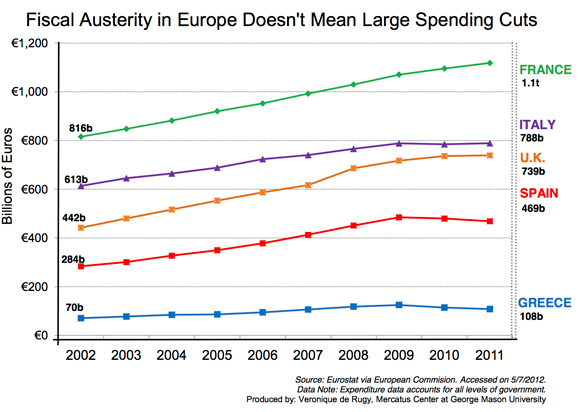Doc Savage Fan
Lifer
- Nov 30, 2006
- 15,456
- 389
- 121
I didn't say it wasn't incredibly important...I said it's impossible to tell how much of their negative GDP growth was the direct result of austerity measures vs other factors. If you have info regarding this, I would like to see it please.Why is that impossible to tell and why is that not incredibly important? Your 'healthy trajectory' has them reaching their pre-crisis GDP by somewhere around 2018. Yes, a decade later. As a counter-example the US has already exceeded its pre-crisis GDP.
Yes, their external debt was very high (graph previously posted) and perhaps much of that was account current...I don't know. The good news is that their external debt as a percent of GDP has dramatically improved over the past 5 years. If you have account current info on current debt, please post as I would appreciate seeing.Additionally, part of their severe recession came from a super high current account deficit... which has started to return. (ie: your optimism going forward may be very misplaced) This devaluation helped them export their way to recovery. Not only can every country not do that simultaneously for obvious logical reasons, but their growth is now slowing back down due to this. 2018 might be optimistic.
So you want to compare the US economy to Latvia's as being equivalent as if it's somehow a valid comparison to prove your point? Perhaps you can think of a small country similar to Latvia that used deficit spending to spend their way to prosperity. Just one...that's all I ask.Taking more than a decade to get back to your pre-crisis GDP while still having an unemployment rate around 11% even while massive emigration of jobless people fleeing your country are artificially reducing your working population is a success?
Again, if that's success I'm terrified of what failure might be.
Anyway, the US had negative GDP growth 4th quarter 2012 and a similar negative growth quarter will officially qualify the US entry into a double-dip recession. I understand that Germany is projected to be in double-dip recession by September. So, if you want to aggregate GDP growth numbers, you need to wait a few more years to see how this all plays out.
As a side note...I'm very interested to see how Japan's new strategy will play out. It will likely take many, many years in order to get a good perspective of the long-term effectiveness of such a strategy.
Last edited:







